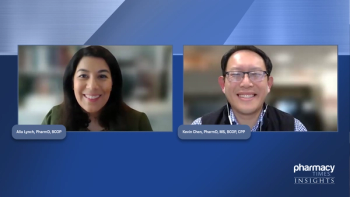
Pathophysiology and Complications Associated With Respiratory Syncytial Virus
Panelists discuss clinical strategies to improve RSV vaccine uptake in high-risk adults by reviewing disease severity, comparing approved vaccines, and emphasizing the pharmacist’s pivotal role in patient education and vaccine advocacy to overcome hesitancy and increase protection in vulnerable populations.
Episodes in this series

This Pharmacy Times Peer Exchange focuses on clinical strategies to optimize respiratory syncytial virus (RSV) vaccination in adult patients, particularly those at high risk for severe disease. The discussion outlines key learning objectives: increasing vaccine uptake among vulnerable populations, understanding differences between approved RSV vaccines, and examining the pharmacist's role in combating vaccine hesitancy. With representation from academic and community pharmacy settings, the panel provides a multifaceted view of RSV prevention and management in adults.
The conversation begins with an overview of RSV pathophysiology and its implications for adult patients. RSV typically presents as a mild, cold-like illness in healthy individuals, making it difficult for health care providers to communicate its seriousness. However, among high-risk groups—such as older adults, immunocompromised individuals, and those with chronic conditions—RSV can lead to life-threatening complications. These include pneumonia, airway obstruction, immune-related organ damage, and even death. The panel notes that RSV can be just as dangerous as influenza or COVID-19 in these populations, highlighting the importance of prevention through vaccination.
The discussion emphasizes that despite the availability of RSV vaccines, uptake remains suboptimal, especially among high-risk adults. Barriers include public perception that RSV is a minor illness and a lack of awareness about vaccine availability. Pharmacists are uniquely positioned to address these challenges due to their accessibility and frequent interactions with patients. By proactively educating patients on the risks of RSV and the benefits of vaccination, pharmacists can play a critical role in improving public health outcomes. The conversation also acknowledges that broader public health efforts, such as consistent messaging and targeted outreach, are needed to overcome hesitancy and ensure widespread vaccine adoption, especially as RSV continues to demonstrate significant seasonal impact and strain on health care resources.
Newsletter
Stay informed on drug updates, treatment guidelines, and pharmacy practice trends—subscribe to Pharmacy Times for weekly clinical insights.


























